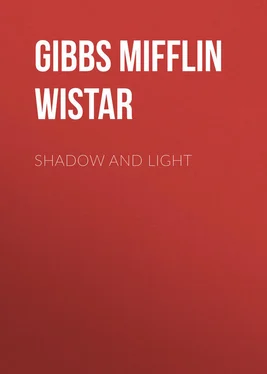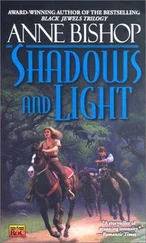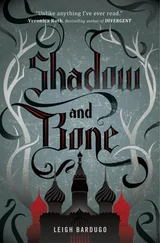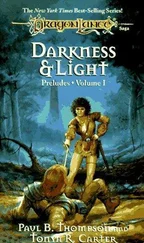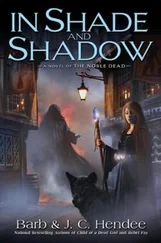Mifflin Gibbs - Shadow and Light
Здесь есть возможность читать онлайн «Mifflin Gibbs - Shadow and Light» — ознакомительный отрывок электронной книги совершенно бесплатно, а после прочтения отрывка купить полную версию. В некоторых случаях можно слушать аудио, скачать через торрент в формате fb2 и присутствует краткое содержание. Жанр: foreign_antique, foreign_prose, на английском языке. Описание произведения, (предисловие) а так же отзывы посетителей доступны на портале библиотеки ЛибКат.
- Название:Shadow and Light
- Автор:
- Жанр:
- Год:неизвестен
- ISBN:нет данных
- Рейтинг книги:4 / 5. Голосов: 1
-
Избранное:Добавить в избранное
- Отзывы:
-
Ваша оценка:
- 80
- 1
- 2
- 3
- 4
- 5
Shadow and Light: краткое содержание, описание и аннотация
Предлагаем к чтению аннотацию, описание, краткое содержание или предисловие (зависит от того, что написал сам автор книги «Shadow and Light»). Если вы не нашли необходимую информацию о книге — напишите в комментариях, мы постараемся отыскать её.
Shadow and Light — читать онлайн ознакомительный отрывок
Ниже представлен текст книги, разбитый по страницам. Система сохранения места последней прочитанной страницы, позволяет с удобством читать онлайн бесплатно книгу «Shadow and Light», без необходимости каждый раз заново искать на чём Вы остановились. Поставьте закладку, и сможете в любой момент перейти на страницу, на которой закончили чтение.
Интервал:
Закладка:
"Ne'er tell me of evening serenely adorning
The close of a life richly mellowed by time,
Give me back, give me back the wild freshness of morning
Her smiles and her tears are worth evening's best light."
Twenty-one years of age found me the possessor of a trade, an attainment, and a capital invaluable for a poor young man beginning the race of life. For whether seen smutted by the soot of the blacksmith shop, or whitened by the lime of the plasterer or bricklayer; whether bending beneath tool box of the carpenter or ensconced on the bench of the shoemaker, he has a moral strength, a consciousness of acquirement, giving him a dignity of manhood unpossessed by the menial and those engaged in unskilled labor. Let it never be forgotten that as high over in importance as the best interest of the race is to that of the individual, will be the uplifting influence of assiduously cultivating a desire to obtain trades. The crying want with us is a middle class. The chief component of our race today is laborers unskilled. We will not and cannot compete with other races who have a large and influential class of artisans and mechanics, and having received higher remuneration for labor, have paved the way for themselves or offsprings from the mechanic to the merchant or to the professional. These three factors, linked and interlinked, an ascending chain will be strong in its relation, as consistent in construction.
In 1849 Frederick Douglass, Charles Lenox Remond and Julia Griffith, an English lady prominent in reform circles in England, attended the National Anti-slavery Convention held in Philadelphia, and presided over by that apostle of liberty, Wm. Lloyd Garrison. At its close Mr. Douglass invited me to accompany him to his home at Rochester, and then to join him in lecturing in the "Western Reserve."
Without salary, poor in purse, doubtful of useful ability, dependent for sustenance on a sentiment then prevailing, that for anti-slavery expression was as reserved as the "Reserve" was Western. I have often thought of my feelings of doubt and fear to go with Mr. Douglass, as an epoch in my life's history. The parting of the ways, the embarkation to a wider field of action, the close connection between obedience to an impulse of duty (however uninviting or uncertain the outcome), and the ever moral and often material benefit.
Rochester proved to be my pathway to California. Western New York, 50 years ago, then known as the "Western Reserve," was very unlike the present as to population, means of travel, material developments, schools of learning, and humanizing influences. Mr. Douglass, in the Baptist Church in Little Rock, Ark., a short time before his death, told how, in 1849, we there traveled together; that where now are stately cities and villages a sparsely settled wilderness existed; that while we there proclaimed abolition as the right of the slave, the chilling effect of those December days were not more cold and heartless than the reception we met when our mission as advocates for the slave became known; churches and halls were closed against us. Stables and blacksmith shops would sometimes hold audiences more generous with epithets and elderly eggs than with manly decorum. God be thanked, Douglass, the grandest of "our grand old men," lived to see "the seeds of mighty truth have their silent undergrowth, and in the earth be wrought." A family, however poor, striving as best they may to give the rudiments of knowledge to their children, should have, if but few, books descriptive of the hopes and struggles of those no better situated, who have made impress on the age in which they lived. We seldom remember from whence we first received the idea which gave impulse to an honorable action; we received it, however, most probably from tongue or pen. For impressible youth such biography should be as easy of access as possible.
It has been said that "a man's noblest mistake is to be born before his time." This will not apply to Frederick Douglass. His "Life and Times" should be in the front rank of selection for blessing and inspiration. A blessing for the high moral of its teaching; an inspiration for the poorest boy; that he need not "beg the world's pardon for having been born," but by fostering courage and consecration of purpose "he may rank the peer of any man."
Frederick Douglass, born a slave, hampered by all the depressing influences of that institution; by indomitable energy and devotion; seizing with an avidity that knew no obstacle every opportunity, cultivated a mind and developed a character that will be a bright page in the history of noble and beneficent achievements.
For the conditions that confronted him and the anti-slavery crusade, have been well and eloquently portrayed by the late George William Curtis. That how terribly earnest was the anti-slavery agitation this generation little knows. To understand is to recall the situation of the country. Slavery sat supreme in the White House and made laws at the capitol. Courts of Justice were its ministers, and legislators its lackeys. It silenced the preacher in the pulpit; it muzzled the editor at his desk, and the professor in his lecture-room. It sat a price on the heads of peaceful citizens; robbed the mails, and denounced the vital principles of the declaration of independence as treason. In the States where the law did not tolerate slavery, slavery ruled the club and drawing room, the factory and the office, swaggered at the dinner table, and scourged with scorn a cowardly society. It tore the golden rule from the school books, and from the prayer books the pictured benignity of Christ. It prohibited schools in the free States for the hated race; hunted women who taught children to read, and forbade a free people to communicate with their representatives.
It was under such conditions so pungently and truthfully stated that Douglass appeared as a small star on the horizon of a clouded firmament; rose in intellectual brilliancy, mental power and a noble generosity. For his devotion was not only to the freedom of the slave with which he was identified, but for liberty and the betterment of humanity everywhere, regardless of sex or color. His page already luminous in history will continue to brighten, and when statuary, now and hereafter, erected to his memory, shall have crumbled "neath the beatings of time;" the good fame of his name, high purpose and unflinching integrity to the highest needs of humanity, will remain hallowed "foot prints in the sands of time." Eminently fit was the naming of an institution in Philadelphia "The Frederick Douglass Hospital and Freedman's School;" the assuaging of suffering and the giving of larger opportunity for technical instruction were cherished ideals with the sage of Anacostia; also the lives of Harriet Beacher Stowe, Lucretia Mott and Francis E. Harper, and the noble band of women of which they were the type, who bravely met social ostracism and insult for devotion to the slave, will ever have a proud place in our country's history. Of this illustrious band was Julia Griffith, hitherto referred to, a grand representative of those renowned women, who at home or abroad, did so much to hasten the downfall of slavery and encourage the weak and lowly to hope and effort. Thackery has said that, "Could you see every man's career, you would find a woman clogging him, or cheering him, or beckoning him on."
Having finished my intended tour with Mr. Douglass, and returned to Rochester, the outlook for my future, to me, was not promising. The opportunities for advancement were much, very much less than now. With me ambition and dejection contended for the mastery, the latter often in the ascendant. To her friendly inquiry I gave reasons for my depression. I shall never forget the response; almost imperious in manner, you could already anticipate the magnitude of an idea that seemed to struggle for utterance. "What! discouraged? Go do some great thing." It was an inspiration, the result of which she may never have known. We are assured, however, that a kind act or helpful word is inseparably connected with a blessing for the giver. To earnest youth I would bequeath the excelsior of the "youth mid snow and ice," and the above injunction, "upward and onward;" "go do some great thing."
Читать дальшеИнтервал:
Закладка:
Похожие книги на «Shadow and Light»
Представляем Вашему вниманию похожие книги на «Shadow and Light» списком для выбора. Мы отобрали схожую по названию и смыслу литературу в надежде предоставить читателям больше вариантов отыскать новые, интересные, ещё непрочитанные произведения.
Обсуждение, отзывы о книге «Shadow and Light» и просто собственные мнения читателей. Оставьте ваши комментарии, напишите, что Вы думаете о произведении, его смысле или главных героях. Укажите что конкретно понравилось, а что нет, и почему Вы так считаете.
